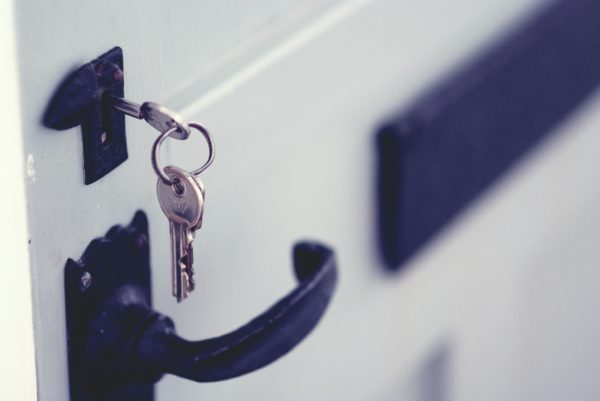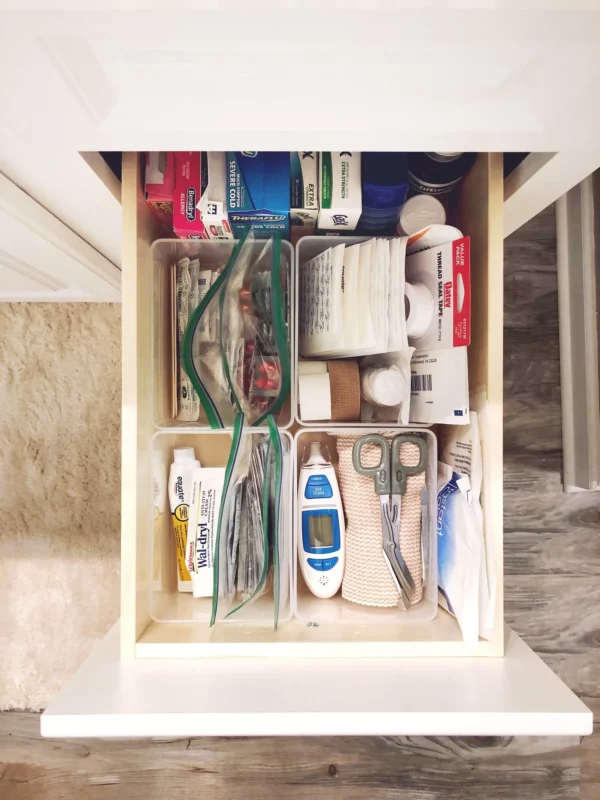
How Millennials Can Overcome Fear in the Home Buying Process
Buying a home is an exciting experience. But, it can also be an emotional one. It’s one of the biggest commitments you can make. For many Millennials, some of the things that go with homeownership can cause a lot of fear and hesitation. Maybe you’ve already owned a home in the past and had a negative experience. Or, maybe you’re looking at buying for the first time and you’ve been overwhelmed by the process.
But, understanding more about the home-buying process can make it easier to get through. Often, fears of owning a home and going through the process to get there are either based on one-off negative experiences, horror stories from other people, or your own assumptions that may not be true.
Let’s dive a little deeper into some common home-buying fears, especially for first-time buyers, and what you can do to overcome them on your way to homeownership.
The Weight of Commitment
In general, Millennials tend to wait longer in life before making major decisions. For starters, they’re getting married later. One survey found that in 2019, only 44% of Millennials were married, compared to 61% of Baby Boomers at a comparable age. That isn’t to say the generation has a commitment phobia. As elder Millennials are entering their early 40s, many are in long-term relationships, but marriage has taken a back seat.
Home-buying is another major life commitment that the 26-41 crowd seems to be waiting longer on than previous generations. Again, it has nothing to do with a fear of settling down. Rather, many Millennials need fewer strings attached for financial reasons. Renting offers many benefits, including:
- Flexibility to work in different job markets
- More available options
- The ability to share a space (and costs) with others
- Maintenance
- Opportunities to “upgrade”
This generation is known for facing a lot of financial struggles. If you’re part of it, you know many of those struggles are no fault of your own. Things like student loans, consumer debt, and a sluggish economy have all contributed to a variety of financial problems.
Debt makes it difficult to qualify for a home loan, and if you spend your free time scrolling through listings on Zillow, it’s easy to get downhearted when you see several perfect properties out of your price range. Those that might be more feasible for your budget might need some work, or aren’t in an ideal location, which only ends up adding to the fear that you’ll never be able to afford a home you really want.
Unexpected Costs
Even if you’ve managed to save up enough money for a downpayment on your dream home, it may not be enough. Many first-time home-buyers are shocked when they learn about some of the unexpected costs that go with not only purchasing a property but the consistent expenses that go with it. Some of the most common expenses that you might not initially think about when buying a house include:
- Closing costs
- Property taxes
- Homeowners insurance
- Utilities
- Emergency costs
Plus, no home is perfect. You might save money by purchasing a home that needs a bit of work but discover that upgrades and replacements cost more than you expected after you sign on the dotted line. Move-in-ready houses aren’t immune to things breaking down, either. Or, you might want to make upgrades based on personal preferences. Things like installing a security system, getting new appliances, or even landscaping can all cost money that you didn’t factor into your initial budget.
Familiarizing yourself with these costs is a good thing. When you do decide to buy, you won’t be as surprised or overwhelmed. But, knowing that these are only a handful of potential unexpected expenses can increase your fear and make you second guess if you’re financially prepared to own a home.
There are ways around the financial fear, of course. While it’s important to understand how unexpected costs can factor into the listing price, it’s also crucial to know that a 20% down payment isn’t always necessary. If you’ve been basing your budget on that, talk to your realtor or a mortgage lender about other options. Looking for realtors Greensboro? Contact Tyler Redhead & McAlister Real Estate. If you’re a first-time buyer, you may be able to get away with a downpayment of just 6%. The less your down payment, the more you’ll have to borrow. But, if you think you’re more likely to increase your income over time rather than offering a lump sum now, it’s an option that will help you pay for everything involved in owning a house, not just the initial payment.
Fear of Failure
Some people take a look at the price tag of a house, or think about everything that goes into owning one, and don’t even try to work out the details. When you’re house hunting, you’re going to be met with a lot of different options, data, and helpful information. While it’s designed to make the process easier, it can also overwhelm you.
The same problem happens in the world of business. When you have a fear of failure going into a decision, it skews the data. You put your focus on the narrative rather than the information in front of you. So, it becomes harder to make a fair decision because you’ve paralyzed your thoughts into thinking about the wrong things and ignoring the facts.
Fear of failure can be difficult to overcome. It’s something that is ingrained in many people from a young age. As a Millennial, it can be even worse if you’ve experienced a job loss or you’ve been living with your parents. But, don’t let that fear skew the information given to you about the home-buying process. Work to overcome those uncertainties and focus on facts. After all, there are no rewards without risks.
Not sure how to break free from your fears? Use some of the following tips:
- Uncover the root cause of your worries
- Actively fight back against negative self-talk
- Set new, realistic goals for yourself
- Consider all potential outcomes
- Think about the worst-case scenario
These suggestions can help you to stay focused on what you want and make the buying process easier. But, even if everything doesn’t go as planned, don’t consider yourself a failure. Buying a home isn’t always a black-and-white situation. Whether your offer isn’t accepted, you don’t have the funding, or something gets skewed in your paperwork, look at it as a learning experience, rather than something that might cause you to “give up” or stop pursuing your dream home.
Working Through Your Worries
Once you discover what’s worrying you the most about buying a home, you can focus on overcoming those fears. One of the best ways to tackle any worry or uncertainty about the process is to plan ahead as much as possible.
If you’re thinking about buying a home, the first thing you should know is that it usually isn’t a quick process. It can take months to find a few places of interest, go through showings, make an offer, and get the paperwork in order. Still, that might not be enough time to make you feel comfortable and to keep your worries at bay.
Don’t be afraid to slow down. Allow yourself to be patient throughout the process. Doing so will give you more confidence in every step, and help you to feel more informed, especially if you’re planning on moving to a new location or different city. If you are, you need to familiarize yourself with the lay of the land, the cost of living, transportation options, and potential neighborhood activities.
Buying a house is only part of the equation when you’re moving. You’ll also need to consider the safety of the location, whether it’s near your place of employment, and how convenient it is when it comes to local shops, schools, or whatever else you may need to live a comfortable life. The last thing you want is to buy a nice home only to realize the location isn’t what you want or need. Taking the time to plan and look at the big picture of the home-buying process can make you feel more comfortable and confident in your final decision.
As a Millennial, there’s no denying you’re up against a few emotional and internal hurdles when it comes to buying a home. Maybe you’ve waited a long time for this process and you’re nervous that you don’t know enough about the experience. Maybe you’ve still got financial concerns even though you’ve been saving up for years.
Deciding to buy a home is a personal decision. Whether you’re truly ready for it or not, don’t let your fears or the “what ifs” of homeownership keep you from making the decision. Do your research, believe in the information given to you, plan ahead, and work with someone who can help you to manage your finances and tell you what you can afford. If this is something you truly want and you know it’s achievable, it’s time to stop letting fear get in the way of moving forward.














































